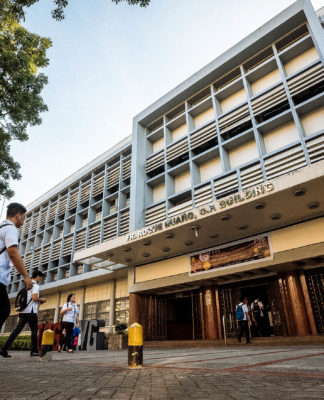FORMER UST rector Fr. Ernesto Arceo, O.P. has returned to the Dominican Order after taking a two-year canonical leave of absence in 2007 following a dispute over the redevelopment of UST Hospital.
In an e-mail to the Varsitarian, Arceo said he was happy to be back in the University in time for the Quadricentennial celebrations.
“I was there during the Quadricentennial celebration and I was glad to be around. It was really an amazing and inspiring celebration, which I think the whole Thomasian community found so meaningful,” Arceo said.
Arceo did pastoral ministry in the Archdiocese of Los Angeles, California. He came back to the country after his leave of absence expired in June last year.
He is now assigned to the Aquinas University in Legazpi City in Albay as senior vice-president.
In 2007, Arceo resigned as rector along with the prior provincial of the Philippine Dominican province, Fr. Edmund Nantes, O.P. and vice rector Fr. Juan Ponce, O.P., following the Dominican Order’s decision to terminate the P3-billion redevelopment of UST Hospital.
Fr. Rolando de la Rosa, O.P. was appointed acting rector by the Vatican, and formally reappointed on June 10, 2008.
The hospital expansion plan involved the construction of a new hospital tower to be funded by a P3-billion loan from a consortium of banks. However, the transactions were deemed illegal under Canon Law as they were not approved by the Dominican Curia and the Vatican.
In a letter sent to the Varsitarian in 2007, Arceo said the P3-billion loan was signed with optimism that Fr. Carlos Alfonso Azpiroz Costa, O.P., then Master General of the Dominican Order, would regularize the transaction by virtue of a “post-factum approval.”
“I would like to apologize to the [Thomasian] community for taking the risk (like the other members of the hospital board) of deciding to sign the loan agreement with the banks, hoping that the Master and his Council would understand … the irregular process we had done for the welfare of the University and the hospital (Canonical irregularity is not necessarily a sin),” Father Arceo wrote. Jennifer M. Orillaza and Darenn G. Rodriguez















